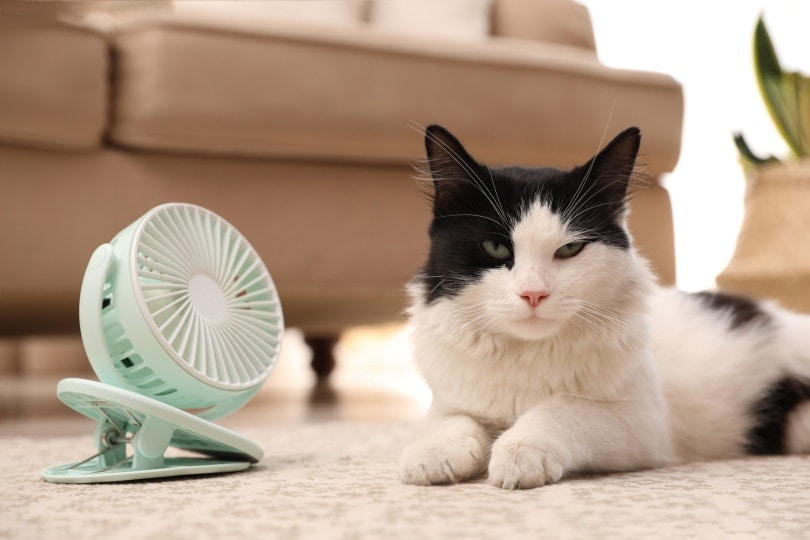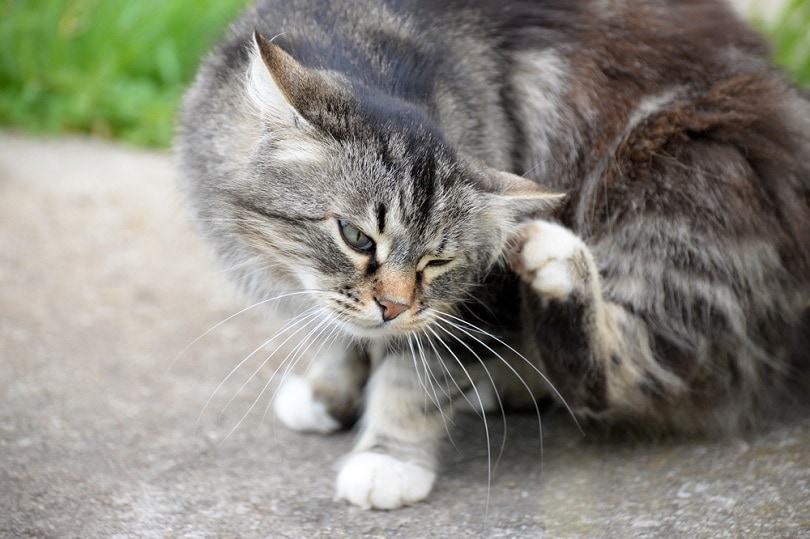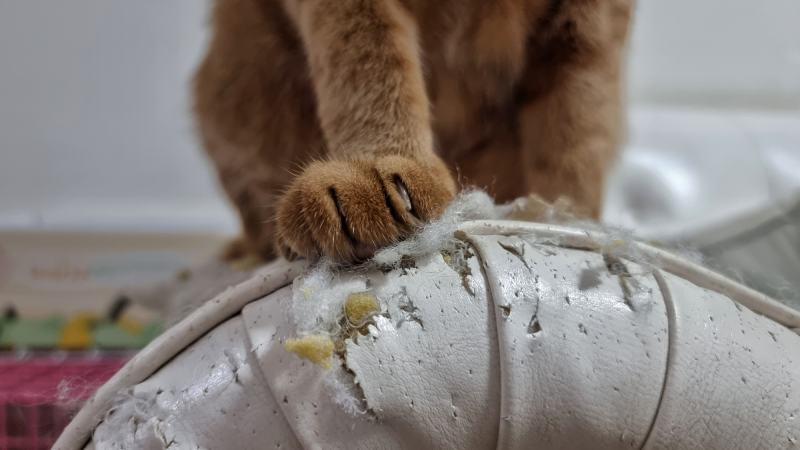Why Do Cats Suck on Blankets? 5 Reasons for This Behavior

Updated on
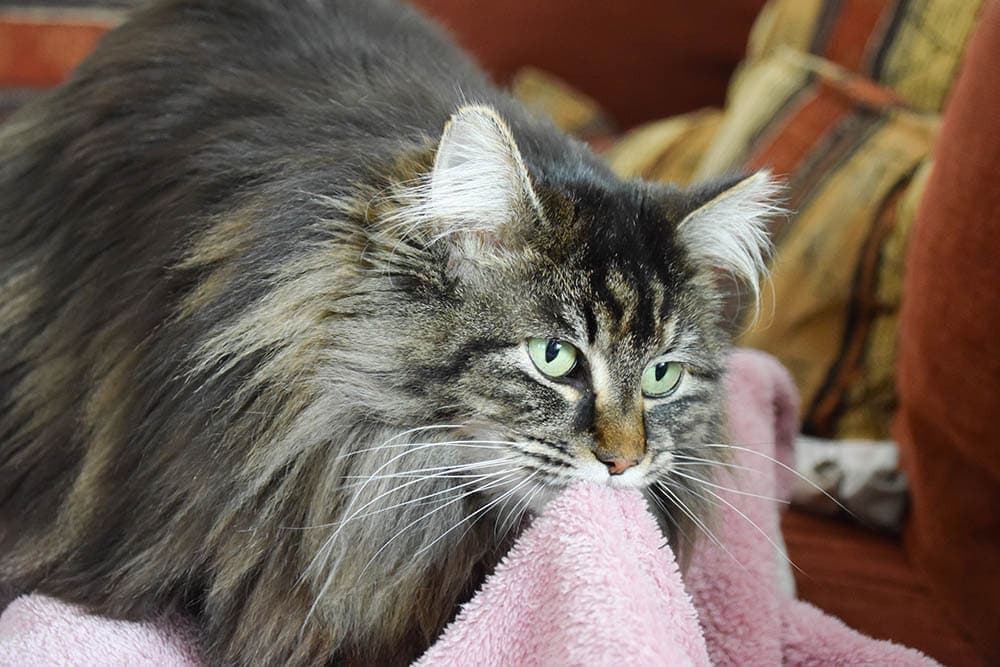
It might seem cute at first, but over time, you’ll likely find yourself wondering why your cat is sucking on a blanket. It doesn’t seem like normal behavior for a cat, and in most situations, it’s not.
So, why is your cat sucking on a blanket, and is it a problem that you need to address? We answer both those questions and dive into a few tips that you use to get your cat to stop.
The 5 Reasons That Cats Suck on Blankets
Blanket sucking is completely normal for a cat until they reach about 10 to 12 months of age. If they don’t stop at that point, then you need to start looking at other potential causes. We highlighted five reasons that your cat might be sucking on a blanket.
1. Anxiety and Stress
Every animal displays stress and anxiety in different ways, and some cats simply choose to suck on blankets to relieve their stress. It might take them back to their nursing days, or it might just be a nervous tick.
Either way, anxiety and stress are major reasons that many cats resort to sucking on blankets.
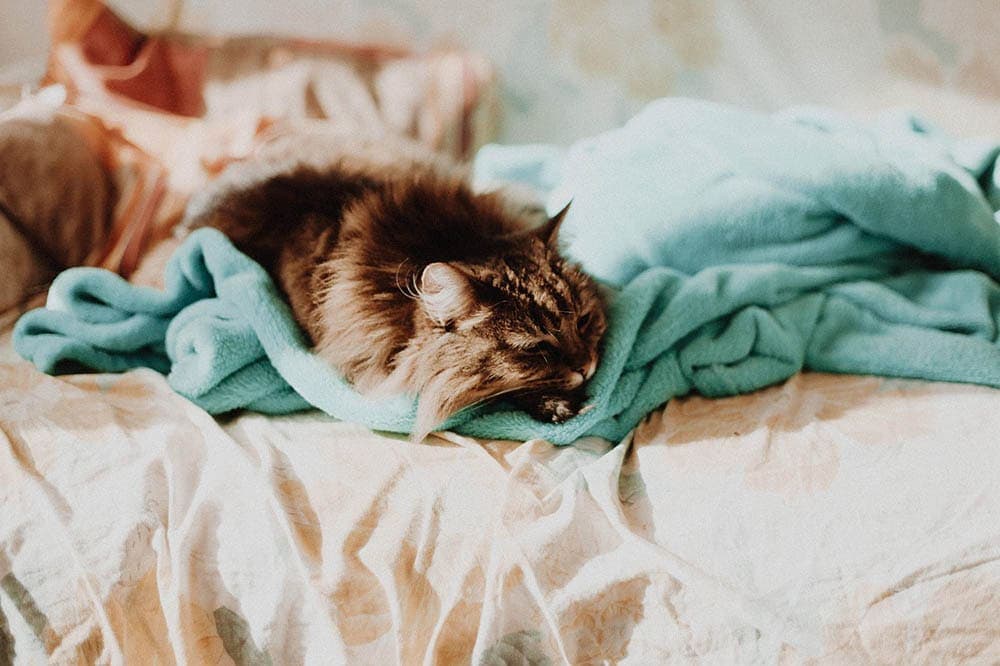
2. Comfort
We all have our own comfort behaviors, and they don’t always make the most sense. Some cats simply feel comfortable when they’re sucking on blankets.
Once again, the exact reason isn’t known, but it might be similar to the way that many children feel when they’re close to a favorite stuffed animal or toy.
3. Underlying Health Concerns
If you can’t figure out why your cat is sucking on a blanket, you might want to consider a trip to the vet. Many underlying medical conditions can present themselves in weird ways. Since early detection is so important, if you suspect that there might be something else going on, you should take your cat to the vet as soon as possible.
This is usually a concern if a cat starts sucking on a blanket later in life and they’ve never exhibited similar behaviors before. Keep in mind that a vet will have to run various tests to see if there’s a problem, and this isn’t always cheap.
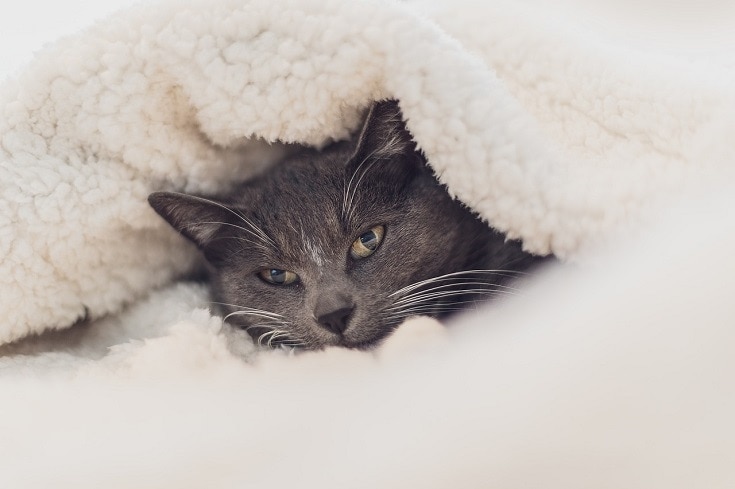
4. Rewarded Behavior
Chances are that you snuggle up with a blanket throughout various parts of the day. You may do this when you’re settling down to watch a show or just taking time to relax. This is the ideal time for you to pet your cat and spend time with them, which many owners do.
Your cat may start to associate the blanket with attention, which can make them view time with the blanket as a reward.
5. Weaned Too Early
If you have a kitten and they’re constantly sucking at a blanket, there’s a good chance that someone weaned them too early. The kitten still displays signs that they need to nurse, but since their mom isn’t around, they have found the next best thing: a blanket.
While it’s not giving them any of the necessary nutrients or filling their bellies, it’s at least giving them a little comfort.

Is Blanket Sucking Bad for Your Cat?
If you notice your cat sucking on a blanket, you might find yourself wondering what the big deal is. Can a cat sucking on a blanket lead to any adverse effects?
Typically, there’s nothing to worry about if your cat is sucking on a blanket. As long as the behavior doesn’t become obsessive or destructive, there aren’t any major concerns.
That said, if the blanket sucking moves to materials that they can ingest, that’s a major red flag. If this happens, they can ingest materials that can cause blockages and other internal damage.
Top 3 Ways to Stop Your Cat From Sucking on Blankets
If your cat’s blanket sucking has become too much of a nuisance or becomes a destructive obsession for your cat, there are a few things that you can do to get them to stop. But before trying any of these methods, it’s important that you rule out any medical causes.
Once a vet has ruled out any potential ailments, you can move on to the following options.
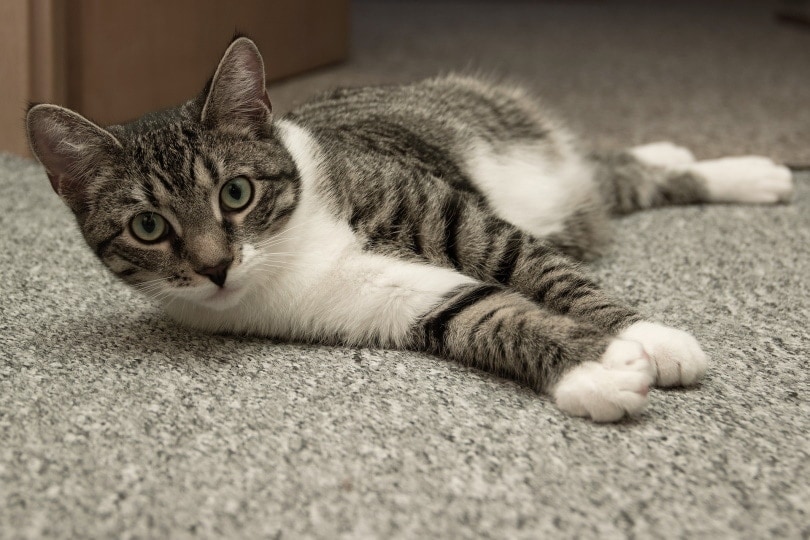
1. Get Rid of the Blankets
If your cat has a favorite blanket to suck on, you can quickly fix the problem by getting rid of the blanket. This doesn’t always mean you need to throw it away; you can always try moving it to a room or location that your cat doesn’t have access to.
But while it might be your favorite blanket too, you’ll save yourself frustration if you just get rid of it. You might be able to reintroduce your cat to the blanket a few months later, but there’s no guarantee that they won’t go straight back to sucking it.
2. Redirect Your Cat
The best thing that you can do if your cat is sucking on a blanket is to redirect them to another oral activity. This can be something as simple as a toy with treats inside. If they have something else to work their mouth on, you can teach them to go to the other activity instead.
But it’s going to take time and consistency to get your cat to stop sucking on blankets. Every time you see them doing it, you need to redirect them, and you need to stick with it.
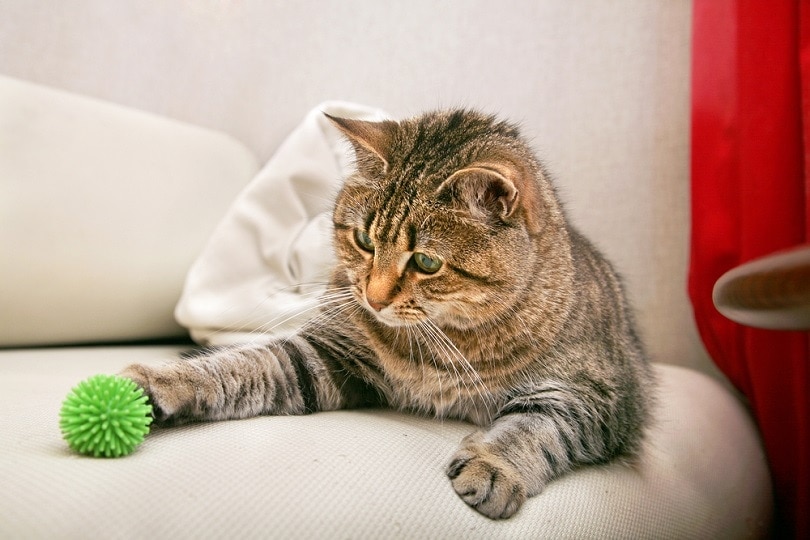
3. Never Punish Them
One thing that you should never do to get your cat to stop sucking blankets is punish them. While negative reinforcement might seem like it will fix the problem, you’re actually creating more issues by doing this.
Also, the cat won’t outgrow the behavior; they’ll likely just try to get away with it when you’re not around.
Final Thoughts
Once your cat reaches a certain age, it’s no longer normal for them to suck on blankets. While they might do it, anyway, you should take the time to rule out any potential medical reasons, just in case.
But if you just have a cat that likes to suck on blankets, and it doesn’t seem to be a problem, chances are that it’s not. As long as they’re not ruining anything, you can let them be happy and suck on the blanket from time to time.
Looking for more information on cat behavior? Take a look at:
Featured Image Credit: KanphotoSS, Shutterstock


